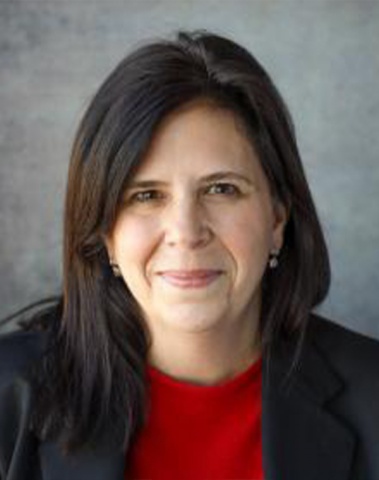The financial acumen and the strong education that I got from the Ford School really helps me to manage the agency with a complex $800 million budget.”

Laura Bishop
First job out of Ford School: Assistant Commissioner, Department of Administration, State of Minnesota
Laura Bishop (MPA '99) recently came full circle moving between the public and private sectors, and back to state government. Her time at the Ford School gave her the foundation in public administration, analytics and economics, as well as the political agility to navigate policy agendas.
Prior to attending the Ford School, Laura Bishop (MPA ‘99) served in the Clinton Administration and the State Department. She entered with the intention of moving to the private sector, and was eager to sharpen her business skills. “I had political skills and policy depth. The fiscal and financial acumen and balance was something that I knew I wanted to do more,” she said. The Ford School helped her broaden her policy experience and develop her financial skills.
Bishop held a sixteen-year career at Best Buy, ending as chief sustainability & corporate responsibility officer. During her interview for the position she explains, “I made the case that I had a degree in public affairs and public administration. I have background in state, federal, and international policy and can easily navigate the complexity of a large organization and help build relations with external partners. I want to help build this administration with these skills,” she said. Bishop said she climbed the ladder at Best Buy because she continued to lean in. “I started Best Buy’s government affairs division and worked to pass laws in 25 states to increase the availability of electronics recycling for consumers. In addition, Best Buy created a consumer-facing recycling program and was the first of many environmental and community initiatives that supported the company’s commitments to the communities it served. Given my experience with these programs, I was asked to lead these teams – helping the company recycle more than 2 billion pounds of electronics and appliances and leading efforts to reduce its carbon footprint by 60% by 2020.”
Appointed commissioner of the Minnesota Pollution Control Agency by Minnesota Governor Tim Walz, Bishop has made climate change mitigation and environmental justice her top priorities. Bishop was also appointed Chair of the Governor’s Climate SubCabinet which is comprised of 15 state agency heads committed to tackling climate change. In 2007, Minnesota enacted the Next Generation Policy Act to reduce greenhouse gas emissions 80 percent by 2050 but currently the state is not on track to meet this goal. Bishop is working with a coalition of 14 other states to reduce greenhouse gas emissions in the transportation sector. “This isn’t without some controversy,” Bishop admitted, “But if we’re going to make meaningful progress on reducing greenhouse gas emissions and put the state back on track to meet its goal, bold action will be required in 2021. Minnesotans are asking for cleaner transportation options, which we can do by supporting more electric vehicles and hybrids, as well as supporting our state’s biofuel industry.”
Additionally, Bishop and her team are working on a pollution density mapping system to address the cumulative impacts we see in communities of color and tribal lands. “What’s not discussed,” she explains, “is how systems have been set up that make pollution worse in those areas like redlining that increase car and truck emission or zoning that allowed more industry in neighborhoods that lead to greater pollution and thus greater health disparities. We’re looking to right those wrongs.”
Throughout her career, Bishop has leaned on the skills she developed at the Ford School. “The financial acumen and the strong education that I got from the Ford School really helps me manage the agency with a complex $800 million budget. Every day, I need to use both my policy skills and political skills to solve some pretty thorny issues. Every organization is looking for people that can problem solve, manage complexity and understand the bigger picture. The Ford School helped prepare me for this type of role.